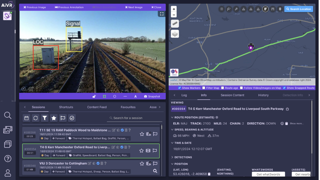The latest stage of Elizabeth line opening means that direct services now connect Reading and Heathrow with Abbey Wood, without the need to change trains.
On Sunday November 6, three sections of the line were connected, enabling passengers to travel across London. Previously, anyone travelling from Heathrow or Reading had to change at Paddington.
Passengers from Shenfield in Essex can now reach Paddington without needing to change at Liverpool Street. Shenfield passengers can also travel to Reading and Heathrow by changing lines from the same platform at any central Elizabeth line station.
And passengers landing at Heathrow can now reach Farringdon in 40 minutes and Canary Wharf in 51 minutes.
Until this month, the line had been closed almost every Sunday for further testing. Transport for London said trains would now run every three to four minutes, seven days a week.
London Mayor Sadiq Khan said the latest extension of the scheme would “bring a huge boost to our city”, adding: “The Elizabeth line is helping to build a better London - a fairer, greener and more prosperous city. London benefits, but also if you live in the west in Reading, or in Shenfield if you live in Essex, or in Windsor, you benefit as well.”
To read the full story, see RAIL 970
You can subscribe for print/digital access via https://bit.ly/3DcPaAv















Güntürk Üstün - 09/11/2022 19:14
It is truly fascinating to witness the Elizabeth line open up quicker and better journey options, greater accessibility, and further connectivity to jobs and leisure for even more people. This will certainly be another huge venture for London’s exceptional public transport system. Since the Elizabeth line opened to passenger services on 24 May 2022, colossal numbers of people have experienced the high-frequency hybrid urban–suburban rail service, using it to travel across London to see friends and loved ones, commute to work, and visit the many sights and attractions the city has to offer. More than 11 million journeys have been made between Paddington and Abbey Wood, which equals more than 200 000 daily journeys. Dr. Güntürk Üstün